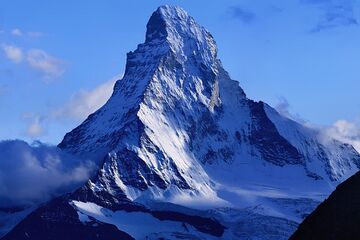Lutharian Alps: Difference between revisions
No edit summary |
Drambenburg (talk | contribs) (→Ranges) |
||
| Line 70: | Line 70: | ||
|- | |- | ||
|Eastern Range | |Eastern Range | ||
|[[ | |[[Lutharia]] | ||
|- | |- | ||
|Avergonese Alps | |Avergonese Alps | ||
| Line 79: | Line 79: | ||
|- | |- | ||
|[[Drambenburgian Alps]] | |[[Drambenburgian Alps]] | ||
|Drambenburg | |[[Drambenburg]] | ||
|} | |} | ||
Revision as of 20:42, 8 December 2021
| Lutharian Alps | |
|---|---|
 Cervin's North Face | |
| Geography | |
File:Lutharian Alps Range.png The range of the Lutharian Alps
| |
| Location | Southwest Euronia |
| Geology | |
| Age of rock | 45 million years |
The Lutharian Alps are a collection of major and minor mountain ranges running along the Ilhavean fault line, which fused sometime in the Miocene Epoch. The Alps represent major geographic, geological, and topographic features of Southwestern Euronia. The Alps extend over several countries, including Lutharia, Avergnon, Drambenburg, Angouburg, Shoassau, and Auraine. Along with the Lutharian Plateau, the Lutharian Alps compose the majority of the geographic structure of Lutharia. While the Eastern Range is entirely in Lutharia, the Western and Southern ranges, which represent the vast majority of the range system, extend significanlty into Auraine and the Drambenburgian Peninsula.
The highest mountain peaks in the ranges include several of the tallest mountains in Euronia, with Mount Cervin (14,692') in Lutharia, Weißburg (15,777') in Drambenburg, and Barre Des Ecrins (13,568') in Avergnon.
Since the middle ages, passage over the Alps has played a major role in both trade and war, having a massive sway on historical connection between the major powers of Mayotte, Drambenburg, and Avergnon.
Geography
Ranges
| Name | Location |
|---|---|
| Eastern Range | Lutharia |
| Avergonese Alps | Avergnon |
| Western Alps | Aurraine |
| Drambenburgian Alps | Drambenburg |